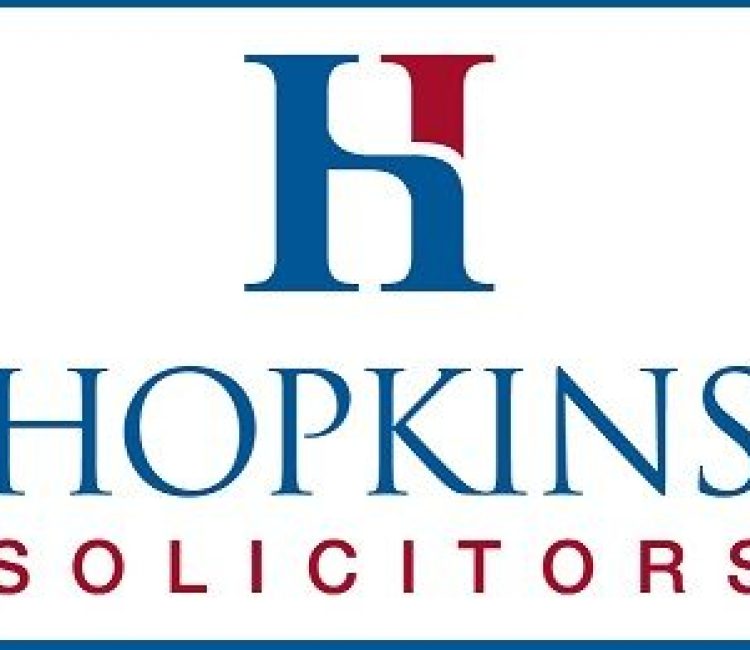
Commercial Property Landlords
Protect Your Property, Income & Reputation – Let Hopkins Solicitors Support Your Role as a Commercial Landlord
Being a commercial landlord today is more complex than ever. From evolving tenant demands and compliance requirements to protecting long-term asset value, success requires more than collecting rent. You need a clear strategy, watertight legal documentation, and the right advice to safeguard your investment. At Hopkins Solicitors, we provide the legal expertise and commercial insight you need to manage your properties with confidence and maximise your returns.
Why Choose Hopkins Solicitors?
- Specialist Expertise: Our commercial property solicitors have extensive experience supporting landlords with lease negotiation, compliance, and dispute resolution.
- Proactive Compliance: We help you meet RICS standards, health and safety laws, and service charge transparency rules, avoiding costly mistakes.
- Strategic Focus: Our advice goes beyond legal requirements, helping you structure portfolios, attract strong tenants, and enhance long-term value.
Ready to Strengthen Your Position as a Landlord?
Do not let legal complexities or compliance risks undermine your investments. Hopkins Solicitors deliver clear, practical, and commercially driven advice tailored to your portfolio and goals.
The role of a commercial landlord in the UK has never been more complex or more opportunity-rich. Economic shifts, evolving tenant demands, and changes to professional standards are shaping the way landlords operate. Gone are the days when property ownership was largely passive; today, successful landlords must take an active role in managing compliance, preserving asset value, and securing reliable income streams. The introduction of new RICS property management principles from January 2025, combined with recent case law on insurance commissions, has heightened the need for strategic legal oversight.
Commercial landlords who manage their portfolios with foresight, professionalism, and the right legal support can achieve a balance between profitability and compliance. Hopkins Solicitors stand at the forefront of this space, providing tailored advice that allows landlords to mitigate risk, negotiate strong leases, and maintain long-term value while maximising return on investment.
Understanding Your Role & Legal Framework
Commercial vs Residential Landlord Obligations
While both commercial and residential landlords aim to protect their investment and secure income, the legal frameworks differ considerably. Commercial leases are usually longer, with more scope for negotiation over terms such as rent reviews, break clauses, and tenant fit-out rights. Tenants often have greater freedom to customise the space, subject to reinstatement clauses. In contrast, residential lettings are governed by highly prescriptive statutory protections for tenants, leaving less flexibility for landlords.
Commercial landlords must also navigate obligations that are not typically present in the residential sector, such as complex service charge arrangements and insurance cost recovery. Professional guidance, informed by RICS standards and best practice, ensures that leases are fair, enforceable, and commercially sound. These standards promote transparency, accountability, and ethical management, forming the benchmark for professional property management.
Health, Safety & Compliance Duties
Legal compliance in commercial property extends beyond basic safety measures. Landlords must ensure compliance with health and safety legislation, fire safety regulations, asbestos management, and environmental standards. Energy Performance Certificates (EPCs) are mandatory before marketing premises, and minimum efficiency standards must be met to legally let a property.
From January 2025, the updated RICS property management principles will require stricter adherence to service charge transparency, timely reporting, and robust dispute resolution. Landlords will need systems in place to meet these requirements efficiently, avoiding penalties and preserving tenant trust.
Asset & Portfolio Management
Structuring Your Portfolio Strategically
A commercial property portfolio should be more than a collection of assets; it should be an intentional, strategically aligned vehicle for growth. How properties are held, whether in a personal name, through a corporate structure, or in a Self-Invested Personal Pension (SIPP), has significant tax and liability implications. A well-structured portfolio supports not only current income goals but also long-term exit strategies.
Diversification is another cornerstone of resilience. Spreading investments across sectors such as office, retail, industrial, and flexible workspace reduces exposure to downturns in any single market. Market adaptability is critical; for example, demand for retail parks and hybrid workspaces is increasing, while certain traditional office markets are contracting.
Maintenance Planning & Service Charges
Well-maintained properties attract and retain high-quality tenants. Planned maintenance programmes, tied to regular inspections, help landlords identify and address issues before they escalate. Aligning maintenance policies with the RICS service charge code ensures compliance and transparency. Tenants value clarity on how service charges are calculated and spent, and disputes are far less likely when budgets and accounts are shared promptly.
Transparent service charge management is not simply good practice – it can be a legal requirement. Upcoming RICS standards emphasise detailed budgeting, regular reconciliation, and providing tenants with accessible records. This openness fosters better landlord-tenant relationships and can reduce costly litigation.
Tenant Acquisition & Lease Negotiation
Rent Benchmarking & Market Positioning
Accurate rent benchmarking is essential for maintaining competitive positioning without underselling your asset. This requires analysis of comparable properties in your area, taking into account location, amenities, and current market demand across office, retail, and industrial sectors. Tenant covenant strength – their ability to meet rental obligations – should be a key consideration, as should the flexibility of your space to adapt to evolving needs, such as co-working or short-term retail use.
Lease Terms to Protect Your Investment
Lease terms are your first line of defence against revenue loss and asset deterioration. Clauses relating to rent reviews, break options, repairing obligations, and insurance must be carefully crafted. Rent review mechanisms need to be fair but protective, and with proposals to ban upward-only rent reviews, landlords should consider alternative models that still safeguard income stability.
Repair obligations should be explicit, leaving no room for interpretation, while insurance cost recovery clauses must comply with new transparency rules. Ambiguity in these areas often leads to disputes that can be costly and time-consuming.
Negotiating & Drafting Commercial Leases
Effective lease negotiation starts with clear Heads of Terms, setting out the essential deal points before drafting begins. Including a detailed schedule of condition is invaluable for avoiding disputes over dilapidations at the end of the term. The recent High Court judgment on insurance commissions has reinforced the need for transparency; landlords must now disclose commissions and ensure lease provisions reflect this requirement.
A well-drafted lease balances protection for the landlord with terms attractive enough to secure the right tenant. This balance helps reduce void periods and supports steady income.
Risk Management & Legal Oversight
Compliance & Legal Documentation
An organised approach to legal documentation is essential. Landlords should maintain a centralised, secure digital archive containing all leases, licences, compliance certificates, deposit records, and insurance policies. This ensures readiness for audits, refinancing, or sales and facilitates prompt responses to tenant queries or disputes.
Service Charge Disputes & Insurance Transparency
Service charge disputes can strain landlord-tenant relationships and damage reputation. The updated RICS professional standards will require clear reporting timelines and robust audit processes to support transparency. The issue of insurance commissions has also become more prominent, with landlords required to disclose commissions to tenants. Failure to comply risks both legal action and reputational harm.
Rent Arrears Recovery & Tenant Default
When tenants default, the Commercial Rent Arrears Recovery (CRAR) process provides a lawful route to reclaim unpaid rent through controlled goods seizure. This process requires strict adherence to statutory notice periods and procedural rules. Missteps can result in claims against the landlord, making legal guidance essential.
Maximising ROI & Long-Term Value
Enhancing Asset Value Through Active Management
Active asset management involves more than keeping the property in good repair. Strategic refurbishments, energy efficiency upgrades, and investment in tenant amenities can increase both rental income and property value. Targeting tenants with strong covenants reduces void periods and makes the asset more attractive to lenders and buyers.
Flexible workspace adaptations can also capture a growing segment of the market willing to pay a premium for short-term, high-quality space. This approach can diversify income streams and respond to market fluctuations more nimbly.
Exit Planning & Value Optimisation
An effective exit strategy considers both timing and presentation. Planning for lease expiries to align with favourable market conditions can significantly enhance sale prices. Early dilapidations assessments help prepare the property for marketing, while maintaining full legal compliance ensures a smooth due diligence process for prospective buyers or lenders.
How Hopkins Solicitors Supports Landlords
Hopkins Solicitors delivers comprehensive landlord-focused legal services:
- Lease Drafting & Negotiation: Prepare robust leases, Heads of Terms, and schedules of condition that define rent reviews, repair obligations, and insurance provisions with precision.
- Compliance Audits: Conduct thorough portfolio checks against RICS codes, health and safety laws, and best practice standards to ensure ongoing compliance.
- Dispute Resolution: Manage service charge disagreements, tenant defaults, and insurance commission disputes efficiently, minimising operational disruption.
- Strategic Advisory Services: Provide guidance on portfolio structuring, market positioning, and asset optimisation to maximise long-term returns.
Our approach combines deep legal expertise with practical commercial insight, enabling landlords to operate from a position of strength, protect income, and preserve asset value.
Top Tips & Common Pitfalls
Common mistakes include failing to define repair obligations clearly, ignoring RICS service charge compliance, neglecting transparency over insurance commissions, and allowing rent review processes to drift without structure. Proactive strategies include seeking legal advice before entering negotiations, implementing RICS-compliant systems, maintaining detailed digital records, and ensuring leases are drafted with precision and foresight.
Conclusion
Commercial property ownership is a demanding but rewarding endeavour when managed with skill and diligence. Strategic foresight, operational efficiency, and legal compliance are the pillars of success. With Hopkins Solicitors as your legal partner, you gain expert guidance in navigating regulatory changes, drafting protective leases, and resolving disputes effectively. This proactive approach safeguards profitability, enhances tenant relationships, and secures long-term value.
If you are a commercial landlord seeking to strengthen your legal position, improve compliance, and maximise returns, contact Hopkins Solicitors for tailored advice and comprehensive support.
FAQs
What legal checks should I complete before letting a commercial unit?
Ensure all compliance certificates are valid, review lease terms for clarity, confirm the deposit and insurance arrangements, and provide transparent service charge documentation.
How do I recover rent arrears legally in commercial premises?
Use the CRAR procedure, ensuring all statutory notice requirements are met, and engage legal support to safeguard the process.
What are landlord’s obligations under the RICS service charge code?
Provide clear budgets in advance, maintain detailed accounts, meet reporting deadlines, and manage disputes through recognised resolution processes.
Request a Callback
"*" indicates required fields
Meet the Team
Testimonials
-
I was very impressed with the service provided
Frank Taylor, 1st December 2025
-
Good Communication
Sukhwant Sandhu, 1st December 2025




